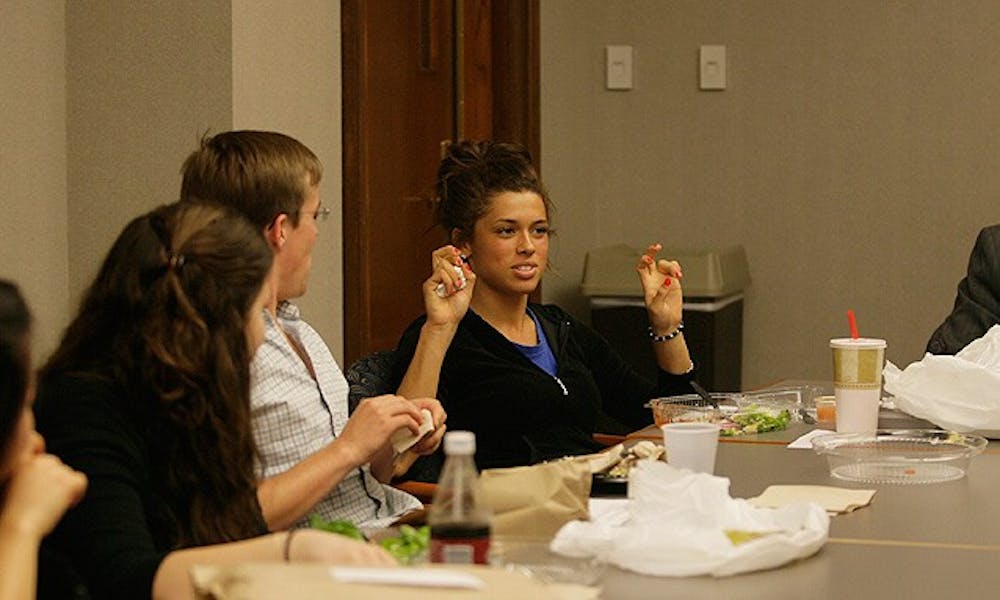Despite recent budget cuts and changes, Duke Dining is off to an optimistic start.
Duke University Student Dining Advisory Committee members and Director of Dining Services Jim Wulforst discussed the success of dining changes and tentative plans for the future.
“I think that a lot of stakeholders in Duke Dining took some sort of sacrifice to make this year one of the best for dining in terms of revenue, number of people who are going out to eat and so on,” said DUSDAC co-Chair Alex Klein, a senior and former online editor for The Chronicle.
Wulforst explained that students had to pay a higher dining administrative fee of $90 per semester, compared to last year’s $19.50 per semester. In addition, the 10 percent discount previously enjoyed by faculty, staff and employees at vendors was eliminated after University officials discontinued the program Aug. 1. These measures were efforts to reduce the $2.2 million Dining deficit which Executive Vice President Tallman Trask announced last year was no longer sustainable due to the economic downturn. Dining officials said last year they plan to eliminate the deficit over a two-year period.
The fee increase is expected to pay for about half of the deficit, and the elimination of the discount program should save the University $50,000 to $75,000.
“The employee discount was a luxury for many years, but it was better to eliminate the discount than worry about raising food prices or cutting workers,” Wulforst said, noting that officials were initially concerned about the elimination of the employee discount having a negative impact on venders’ revenue.
Dining also saw structural reform over the summer, Wulforst added. After Kemel Dawkins, vice president for campus services, left the University and the campus services department was dissolved this summer, Dining was taken under the umbrella of the Office of Student Affairs, allowing Wulforst to work directly with Vice President for Student Affairs Larry Moneta.
“I think the best thing that has happened this year is how well our relationship with Student Affairs turned out,” said DUSDAC co-Chair Andrew Schreiber, a senior. “Before, Dining did not get much support from anyone, but now things are much better.”
Wulforst also said the plan to renovate the West Union Building is making significant progress. He said that a renovation has been an ongoing discussion for 15 years because many challenges needed to be tackled and still exist, noting that six venders would be affected by the building’s closure.
“We’re looking at temporary facilities for these venders, such as the [Intramural] Building, tents and so on,” Wulforst said, addressing possible locations for those eateries during construction. “But the funding finally seems to be on the horizon. It looks like the plan might happen pretty soon.”
Get The Chronicle straight to your inbox
Signup for our weekly newsletter. Cancel at any time.

